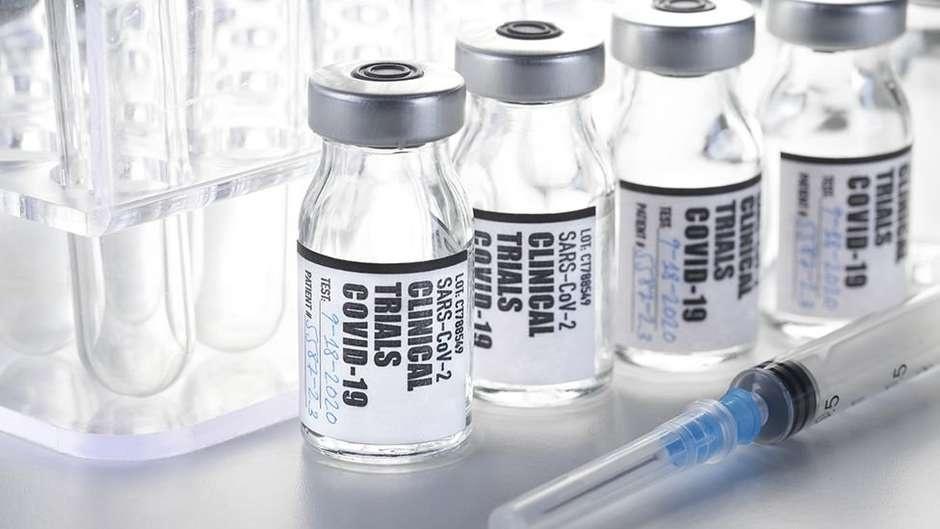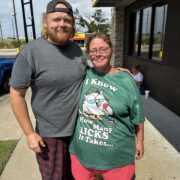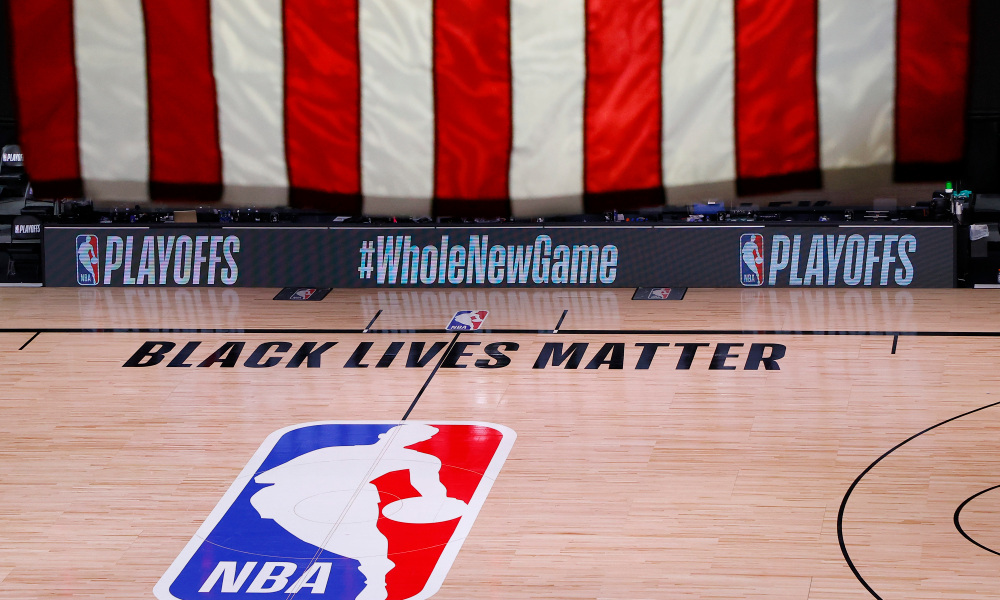
By Jonathan Corum, Denise Grady, Sui-Lee Wee and Carl Zimmer
Researchers around the world are developing more than 165 vaccines against the coronavirus, and 32 vaccines are in human trials. Vaccines typically require years of research and testing before reaching the clinic, but scientists are racing to produce a safe and effective vaccine by next year.
![]()
Antibody produced in response to a vaccine SARS-CoV-2 coronavirus
Work began in January with the deciphering of the SARS-CoV-2 genome. The first vaccine safety trials in humans started in March, but the road ahead remains uncertain. Some trials will fail, and others may end without a clear result. But a few may succeed in stimulating the immune system to produce effective antibodies against the virus.
Here is the status of all the vaccines that have reached trials in humans, along with a selection of promising vaccines still being tested in cells or animals.
For an overview of different Covid-19 treatments, see our Coronavirus Drug and Treatment Tracker.
New additions and recent updates:
• Taiwan-based Adimmune enters Phase 1. Aug. 20
• Cuba’s Finlay Vaccine Institute begins Phase 1/2 trials. Aug. 19
• Curevac moves from Phase 1 to 2. Aug. 17
• A Merck, Themis and Institut Pasteur vaccine enters Phase 1. Aug. 12
• Russia approves a Gamaleya vaccine before Phase 3 testing. Aug. 11
The Vaccine Testing Process
The development cycle of a vaccine, from lab to clinic.
![]()
PRECLINICAL TESTING: Scientists give the vaccine to animals such as mice or monkeys to see if it produces an immune response.
PHASE 1 SAFETY TRIALS: Scientists give the vaccine to a small number of people to test safety and dosage as well as to confirm that it stimulates the immune system.
PHASE 2 EXPANDED TRIALS: Scientists give the vaccine to hundreds of people split into groups, such as children and the elderly, to see if the vaccine acts differently in them. These trials further test the vaccine’s safety and ability to stimulate the immune system.
PHASE 3 EFFICACY TRIALS: Scientists give the vaccine to thousands of people and wait to see how many become infected, compared with volunteers who received a placebo. These trials can determine if the vaccine protects against the coronavirus. In June, the F.D.A. said that a coronavirus vaccine would have to protect at least 50% of vaccinated people to be considered effective. In addition, Phase 3 trials are large enough to reveal evidence of relatively rare side effects that might be missed in earlier studies.
APPROVED: Regulators in each country review the trial results and decide whether to approve the vaccine or not. During a pandemic, a vaccine may receive emergency use authorization before getting formal approval. Once a vaccine is licensed, researchers continue to monitor people who receive it to make sure it’s safe and effective.
COMBINED PHASES: Another way to accelerate vaccine development is to combine phases. Some coronavirus vaccines are now in Phase 1/2 trials, for example, in which they are tested for the first time on hundreds of people. (Note that our tracker would count a combined Phase 1/2 trial as both Phase 1 and Phase 2.)
Genetic Vaccines
Vaccines that use one or more of the coronavirus’s own genes to provoke an immune response.
![]()
DNA RNA
![]()
![]()
Moderna develops vaccines based on messenger RNA (mRNA) to produce viral proteins in the body. They have yet to bring one to the market. The government has bankrolled Moderna’s efforts on a coronavirus vaccine with nearly $1 billion. In partnership with National Institutes of Health, they found that the vaccine protects monkeys from the coronavirus. In March, the company put the first Covid-19 vaccine into human trials, which yielded promising results, After carrying out a Phase 2 study they launched a Phase 3 trial on July 27. The final trial will enroll 30,000 healthy people at about 89 sites around the United States. On August 11, the government awarded the company an additional $1.5 billion in exchange for 100 million doses if the vaccine proves safe and effective.
In July Moderna lost a patent dispute over some of their vaccine technology. The following month, the company stated that it could not be certain it was the first to make the inventions claimed in their patents, including its coronavirus vaccine.
Updated Aug. 17
![]()
![]()
![]()
The German company BioNTech entered into collaborations with Pfizer, based in New York, and the Chinese drug maker Fosun Pharma to develop an mRNA vaccine. In May they launched a Phase 1/2 trial on two versions of the vaccine. They found that both versions caused volunteers to produce antibodies against SARS-CoV-2, as well as immune cells called T cells that respond to the virus. They found that one version, called BNT162b2, produced significantly fewer side effects, such as fevers and fatigue, and so they chose it to move into Phase 2/3 trials. On July 27, the companies announced the launch of a Phase 2/3 trial with 30,000 volunteers in the United States and other countries including Argentina, Brazil, and Germany.
In that same month, the Trump administration awarded a $1.9 billion contract for 100 million doses to be delivered by December and the option to acquire 500 million more doses. Meanwhile, Japan made a deal for 120 million doses. In August, Pfizer said it was on track to seek regulatory review of their vaccine as early as October 2020. If approved, Pfizer has said they expect to manufacture over 1.3 billion doses of their vaccine worldwide by the end of 2021.
Updated Aug. 21
![]()
Indian vaccine-maker Zydus Cadila began testing a DNA-based vaccine in July, becoming the second company in India to enter the Covid-19 vaccine race after Bharat Biotech. They launched a Phase 2 trial on Aug. 6.
Updated Aug. 6![]()
In March, the Trump administration unsuccessfully tried to entice CureVac to move its research from Germany to the United States. In June, the company launched a Phase 1 trial of its mRNA vaccine, and in August it registered a Phase 2 trial. The company said its German facility can make hundreds of millions of vaccine doses a year.
Updated Aug. 17
![]()
![]()
Imperial College London researchers have developed a “self-amplifying” RNA vaccine, which boosts production of a viral protein to stimulate the immune system. They began Phase 1/2 trials on June 15 and have partnered with Morningside Ventures to manufacture and distribute the vaccine through a new company called VacEquity Global Health. The researchers expect to know if the vaccine is effective by the end of the year.![]()
![]()
![]()
On June 30, the Japanese biotechnology company AnGes announced they had started Phase 1 trials on a DNA-based vaccine, developed in partnership with Osaka University and Takara Bio.
Updated July 2
![]()
![]()
The California-based company Arcturus Therapeutics and Duke-NUS Medical School in Singapore have developed an mRNA vaccine. The “self-replicating” design of the molecules in the vaccine led to strong immune responses in animal experiments. In August, they launched a Phase 1/2 trial at Singapore General Hospital.
Updated Aug. 12
PHASE 1
![]()
The American company Inovio has developed DNA-based vaccines which are delivered into the skin with electric pulses from a hand-held device. They have vaccines in clinical trials for a number of diseases, and in June they announced interim data from a Phase 1 trial on Covid-19. They found no serious adverse effects, and measured an immune response in 34 out of 36 volunteers. Inovio has yet to publish detailed results of these studies, however, and it is embroiled in several lawsuits with stockholders and a company partner. They plan to start Phase 2/3 trials by the end of the summer.
Updated Aug. 10
![]()
The Korean company Genexine started testing the safety of a DNA-based vaccine in June. They anticipate moving to Phase 2 trials in the fall.
Updated June 24
![]()
![]()
![]()
In June, Chinese researchers at the Academy of Military Medical Sciences, Suzhou Abogen Biosciences and Walvax Biotechnology announced they would start their country’s first safety trials on a mRNA-based vaccine, called ARCoV. Earlier studies on monkeys reportedly showed protective effects.
Updated June 26
PRECLINICAL
![]()
![]()
The French pharmaceutical company Sanofi is developing an mRNA vaccine in partnership with Translate Bio. On June 23, they announced they were planning Phase 1 trials in the fall.
Viral Vector Vaccines
Vaccines that use a virus to deliver coronavirus genes into cells. The cells make viral proteins, provoking an immune response, but the virus cannot replicate.
![]()
![]()
![]()
The Chinese company CanSino Biologics developed a vaccine based on an adenovirus called Ad5, in partnership with the Institute of Biology at the country’s Academy of Military Medical Sciences. In May, they published promising results from a Phase 1 safety trial, and in July they reported that their Phase 2 trials demonstrated the vaccine produced a strong immune response. In an unprecedented move, the Chinese military approved the vaccine on June 25 for a year as a “specially needed drug.” CanSino would not say whether vaccination would be mandatory or optional for soldiers. On August 9, the Saudi health ministry announced that CanSino Biologics would run a Phase 3 trial in Saudi Arabia. The company is in negotiations with other countries for more trials.
Updated Aug. 10![]()
![]()
A vaccine in development by the British-Swedish company AstraZeneca and the University of Oxford is based on a chimpanzee adenovirus called ChAdOx1. A study on monkeys found that the vaccine provided them protection. In May, the United States awarded the project $1.2 billion in support. Their Phase 1/2 trial revealed that the vaccine was safe, causing no severe side effects. It raised antibodies against the coronavirus as well as other immune defenses. The vaccine is now in Phase 2/3 trials in England and India, as well as Phase 3 trials in Brazil, South Africa, and the United States.
In August the European Union reached an agreement for AstraZeneca to deliver 400 million doses if the trials yield positive results. AstraZeneca has indicated they might be able to start delivering emergency vaccines as early as October, depending on the outcome of the studies. The company has said their total manufacturing capacity for the vaccine, if approved, stands at two billion doses. India’s Serum Institute has already produced millions of doses to be used in trials.
Updated Aug. 17![]()
![]()
A decade ago, researchers at Beth Israel Deaconess Medical Center in Boston developed a method for making vaccines out of a virus called Adenovirus 26, or Ad26 for short. Johnson & Johnson developed vaccines for Ebola and other diseases with Ad26 and have now made one for the coronavirus. In March they received $456 million from the United States government to support their move towards production. The vaccine has provided protection in experiments on monkeys. Johnson & Johnson launched Phase 1/2 trials in July and will launch a Phase 3 trial with 60,000 participants in September. In August, the federal government agreed to pay $1 billion for 100 million doses if the vaccine is approved. The company is aiming for production of at least a billion doses in 2021.
Updated Aug. 21![]()
The Gamaleya Research Institute, part of Russia’s Ministry of Health, launched a Phase 1 trial in June of a vaccine they called Gam-Covid-Vac Lyo. It is a combination of two adenoviruses, Ad5 and Ad26, both engineered with a coronavirus gene. In July, the chair of the upper house of Russia’s Parliament said the country might start vaccine production by the end of the year.
On Aug. 11, President Vladimir V. Putin announced that a Russian health care regulator had approved the vaccine, renamed Sputnik V, before Phase 3 trials had even begun. Vaccine experts decried the move as risky, and Russia later walked back the announcement, saying that the approval was a “conditional registration certificate,” which would depend on positive results from Phase 3 trials. Those trials, initially planned for just 2,000 volunteers, were expanded to 40,000.
Updated Aug. 24
![]()
![]()
The Italian biotechnology company ReiThera has developed a Covid-19 vaccine, called GRAd-COV2, that is based on an adenovirus that infects gorillas. Working in collaboration with the Lazzaro Spallanzani National Institute for Infectious Diseases in Rome, they launched a Phase 1 trial at the end of July.
Updated Aug. 10![]()
The Swiss company Novartis will manufacture a vaccine based on a gene therapy treatment developed by the Massachusetts Eye and Ear Hospital, Massachusetts General Hospital and the Gene Therapy Program at the University of Pennsylvania. A virus called an adeno-associated virus delivers coronavirus gene fragments into cells. Phase 1 trials are set to begin in late 2020.
Updated Aug. 24
![]()
Vaxart’s vaccine is an oral tablet containing an adenovirus that delivers coronavirus genes. They are preparing for Phase 1 trials this summer.
Updated June 26
For more updates go to: www.nytimes.com









